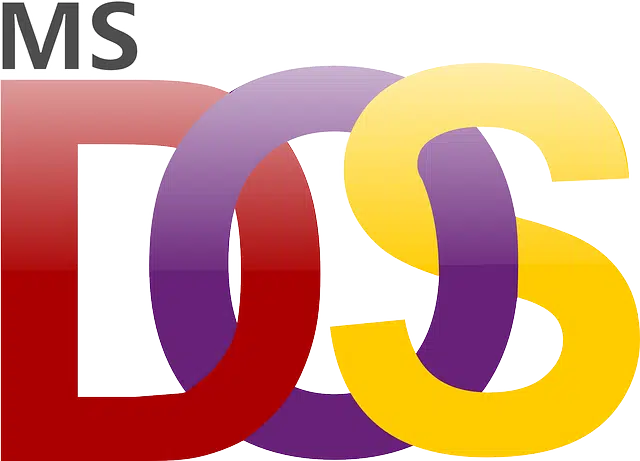
MS-DOS is an operating system that had its first version in 1981.
MS-DOS is the acronym corresponding to the English expression Microsoft Disk Operating System , which can be translated as Microsoft Disk Operating System . It is an operating system developed by Microsoft whose first version was presented in August 1981 .
Before moving forward, it is important to keep in mind that the operating system is the software that makes it possible to manage the resources of a computer equipment (such as a computer or a phone). This set of computer programs begins to work when the device is turned on because it is dedicated to managing the hardware.
In the case of MS-DOS , it is a product that integrates the family of operating systems called DOS . There are other versions, such as DR-DOS and PC-DOS , although MS-DOS is the most popular.
The history of MS-DOS
The origins of MS-DOS are associated with the Seattle Computer Products company. In this company , computer engineer Tim Paterson developed an operating system called QDOS ( Quick and Dirty Operating System ).
What Paterson did was create an operating system based on CP/M , another operating system that Gary Kildall devised for the Intel 8080 ( 8-bit ) processor . Seattle Computer Products marketed Paterson 's QDOS under the name 86-DOS , already adapted for 8086 ( 16-bit ) processors.
In 1981 , meanwhile, Microsoft acquired 86-DOS for $50,000 , renamed it MS-DOS and then licensed it to IBM , thus creating the PC-DOS version. The company headed by Bill Gates also licensed MS-DOS to many other firms since the system could run on all computers in the 8086 family, regardless of hardware .

Microsoft bought 86-DOS and renamed it MS-DOS.
Main features
MS-DOS must be installed on the hard drive (hard drive) of the computer. Three files are enough to start it: COMMAND.COM , IO.SYS and MSDOS.SYS . However, others are needed to fully enable its features and commands.
Its operation is based on a command line interface . This means that the user can give instructions through a simple line of text. The command interpreter, in this case, is COMMAND.COM .
In COMMAND.COM interactive mode, the user can type the commands and press Enter to execute them. Another option is the batch mode that executes a sequence that is stored in a file with a .BAT extension.
By resorting to a command line interface, MS-DOS lacks a graphical interface. Therefore, with the advancement of the Windows operating system and its interface with windows, MS-DOS lost popularity, even being “camouflaged” or hidden in many versions of Windows despite still being active.
MS-DOS versions
The first version of MS-DOS ( MS-DOS 1.0 ), as we already indicated, was introduced in 1981 . Two updates were released the following year ( MS-DOS 1.1 and MS-DOS 1.25 ), while the second full version ( MS-DOS 2.0 ) was made public in 1983 .
In total, MS-DOS had eight major versions over its nearly two decades of active history. The last one, called MS-DOS 8.0 , arrived in 2000 . It is interesting to mention that, in 2015 , Microsoft published the source code for MS-DOS 1.1 and MS-DOS 2.0 .
